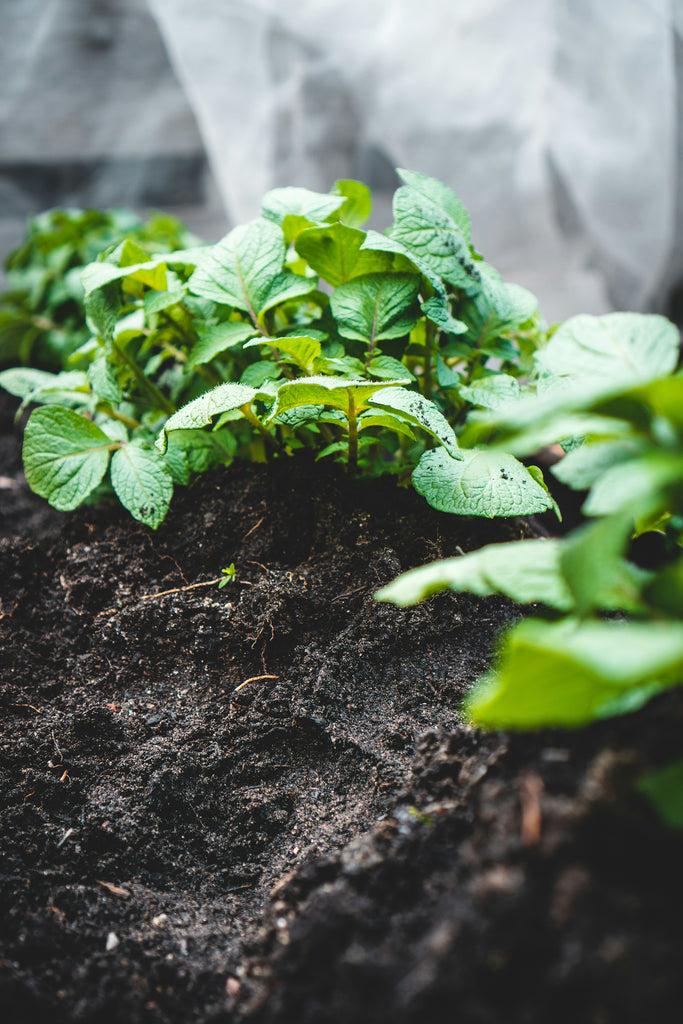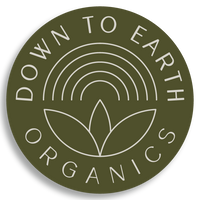
As mental health acceptance and awareness become loudly woven into contemporary society, so does our passion for understanding the relationships between mental health and organic food. Last month the wonderful Lee (co owner) headed up to Auckland to attend an incredible seminar called Mental Health Reimagined.
A topically timed discussion seeing as the three-year ban on GMO is ending thus allowing the government to forge ahead with law changes in the food production sector.
The seminar was led by Dr Coetzee, a specialist in Psychology, human nutrition, and holistic nutrition. The day was spent learning about chronic conditions that can mimic mental health symptoms. Dr Coetzee reviewed key micronutrients and pathways, looked at the interpretation of functional test markers, dietary protocols and much more.
Here are Lee's key takeaways from the seminar:
- Our younger generation are being impacted the most by mental health issues. A study by HPA (Health Promotion Agency) titled Mental Health in Aotearoa, show that ages 16-35 are being affected the most.
- Glyphosate, which is found in Round up, has been linked to several mental health studies. Glyphosate is toxic and water-soluble, allowing it to readily disperse in our environment. We’re guessing this is why banned in several countries.

It’s the knock-on effect of glyphosate which is the problem. Glyphosate once in the plant can leach into the soil, reducing minerals from our plants and in return we are not getting all the essential minerals that are necessary for overall wellbeing.
The International Agency for Cancer has recognised glyphosate as a probable carcinogen. Bayer, the producer of Roundup, has already paid over 15 billion New Zealand dollars to nearly 100,000 individuals around the world who developed cancer after being exposed to glyphosate-based herbicides.

If you are freaking out right about now do not worry, we have included a petition to have this banned here.
Eating organic foods is a great way to get your essential minerals and nutrients that non-organic doesn’t always offer. Aside from buying all your lovely legumes umbrellas (to shield them from the chemical downpour) and buying us out of fresh organic produce, Lee also suggests getting your bloods done and making sure your gut health is okay. The reason being, nutrient deficiencies can mimic mental health issues, like anxiety and depression, so it is important to make sure you aren’t deficient in any key nutrients such as:
B vitamins, Magnesium, Zinc, Iodine, Selenium, Iron and we now know that gut health plays an important role in our mood.
It’s also important to remember that many other things can impact mental health including too much screen-time, online gaming, sugar, processed foods, caffeine, stress and alcohol.

We have two of the BEST local organic farms stocking our shelves here at Down to Earth Organics, Kaitake Farm (who grow naturally and manage weeds using organic methods and staying well and truly away from Glosophate) and Six Acres certified Organic Farm. We reached out to Karla from Six Acres Farm to find out her thoughts on Glyphosate, mental health and soil health.
‘My journey into organics started at a young age after my father passed away from cancer. He had previously worked with chemicals at a plant nursery amongst other things, and I have always been committed to an organic lifestyle, growing veggies and building our soil health.
When I first started Six Acres Farm, a local horticulturalist explained how young children often don’t like lettuce/salad as their sensitive taste buds can taste the chemical residues (ie from glyphosate) in the produce. Before purchasing our land, I undertook extensive soil tests to ensure our land would meet the stringent BioGro organic criteria and was safe from toxic chemicals and heavy metals, ensuring a solid foundation to build a healthy soil for the future.
I think people often underestimate the impact of soil health on our bodies and our environment. The pleasure gained from a few hours working in the soil has mental health benefits as well as physical benefits. Although you may feel tired from spending a few hours gardening, it often has a positive impact on wellbeing, releasing serotonin in our brains and endorphins. Nurturing our soil and strengthening the building blocks within it – especially mycorrhizal fungi - can also alleviate the negative effects of chemical-induced stress on crops, as well as improving nutrient uptake, nourishing and hydrating plants. These same fungal bioactives that benefit plants are also being explored for alleviating symptoms of mental health disorders.
Studies over the past few decades clearly show that soil life improves mineral uptake and phytochemical production in many crops. (ie Lehmann et al., 2014). A study in the British Journal of Nutrition by Baranski et al., 2014 estimated that “organic crops contained significantly higher concentrations of antioxidants … and that people consuming organically grown foods would take in 20-60% more phytochemicals than if they ate conventional foods”.
All of this provides strong evidence and incentive to grow your own fruit and veggies. Starting small, with just a few pots or a couple of beds at your home is a great way to enjoy the many benefits, physically and mentally, of growing and eating homegrown, organic produce. If you don’t have the time to grow your own, then buying certified organic produce from Down to Earth is a great alternative, ensuring you still can enjoy the nutritional benefits of produce grown from healthy soils.’
Another person / group who tackles this topic in depth is Organic NZ. This is a great read that tackles the issue in depth:
https://organicnz.org.nz/magazine-articles/rethinking-glyphosate/
If you’d like more information on any of the above, please do not hesitate to flick us an email or pop in and see one of our delightful naturopaths and homeopaths.
If you or someone you love is struggling with Mental Health, please follow this link to access resources.

